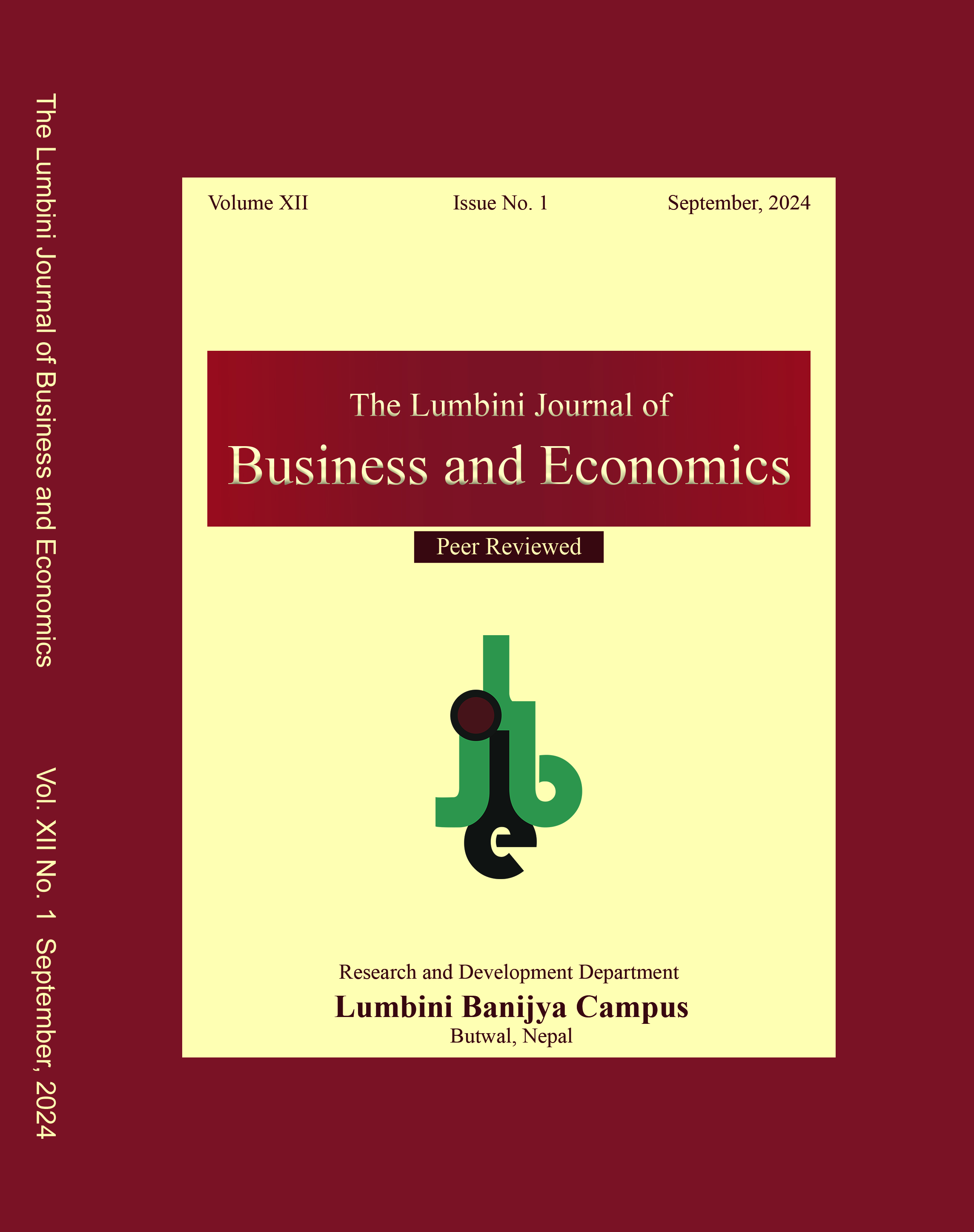Electric Vehicle in Kathmandu Valley: Understanding Public Perception and Adoption
DOI:
https://doi.org/10.3126/ljbe.v12i1.70320Keywords:
Electronic vehicle, environmental concerns, financial incentives, EV adoption behaviorAbstract
Purpose: This research work aims to explore attitudes and beliefs toward electric vehicle (EV) adoption in Kathmandu Valley; identify the factors influencing these perceptions, and assess how socio-demographic factors and infrastructure availability impact willingness to adopt EVs.
Methods: Descriptive and explanatory research design used incorportaing quantitative data. A sample of 500 individuals from Kathmandu Valley participated, during data collection focusing on their travel patterns, attitudes, and reasons for considering EV adoption.
Results: Environmental concerns, cost savings, and financial incentives motivate for EV adoption. Most respondents exhibited positive or neutral attitudes, though some remained reluctant or neutral. Socio-demographic factors like gender, income, and education significantly influence pro-environmental behavior and attitudes toward EV adoption. Infrastructure availability is found to be less of a concern for most consumers.
Conclusion: There is a need for increased public awareness and targeted education to promote greater EV adoption in Kathmandu Valley especially among people with neutral or negative attitudes. The environmental consciousness and financial incentives are more influential in shaping EV adoption attitudes than infrastructure availability.




